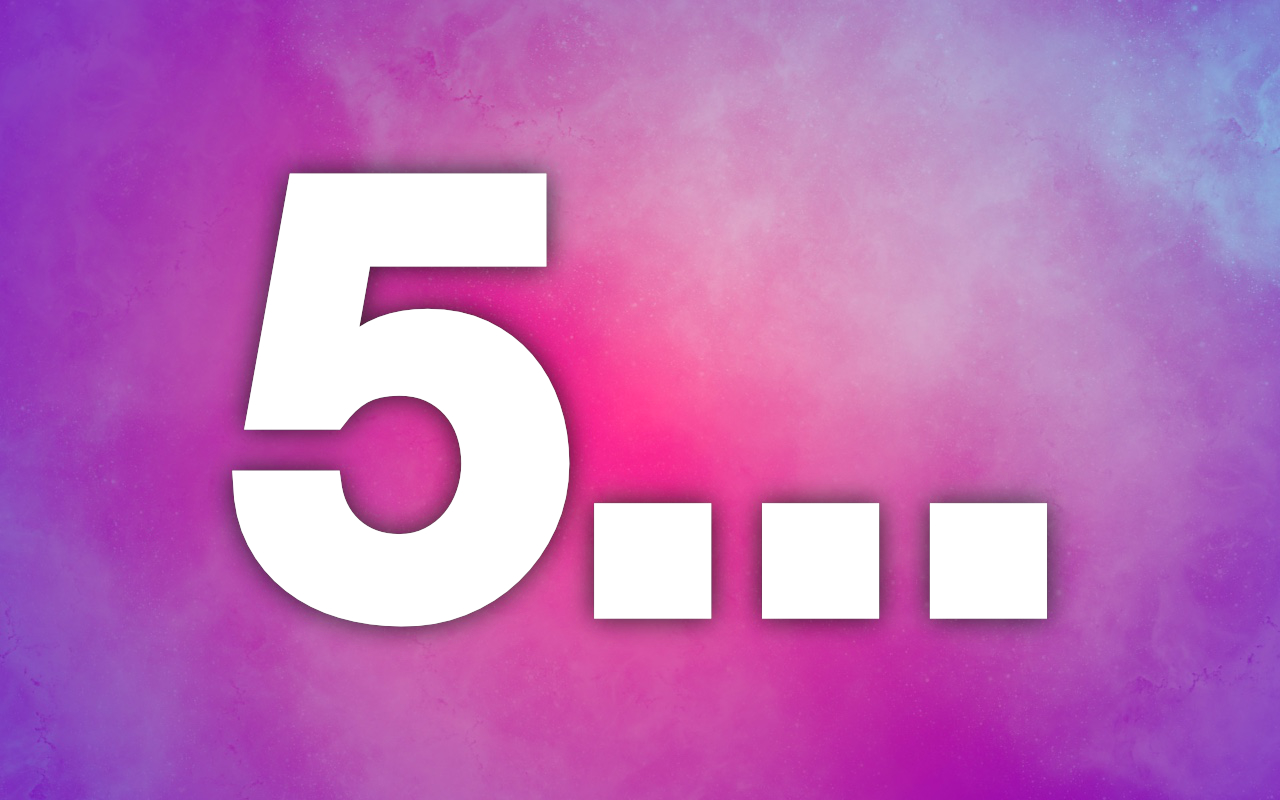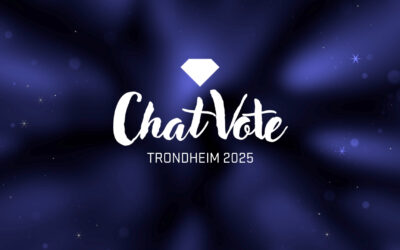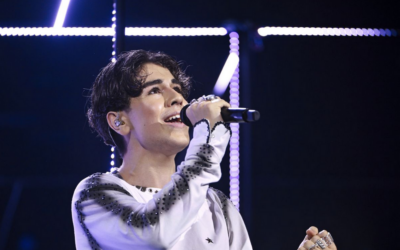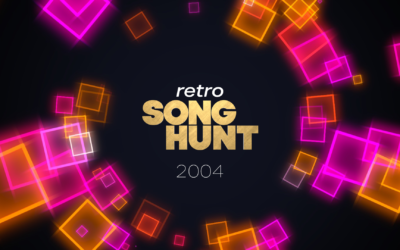
Five milestones in Eurovision history

Five milestones in Eurovision history
The history book on the shelf, the one about the Eurovision Song Contest, begins with the 1956 edition. And none of us know yet when it will end, as the contest is still going strong and keeping relevant after more than 60 years. Over time, though, a lot of things have changed when it comes to music, rules, visual appearance, and many other aspects.
And we know the Eurovision Song Contest also goes back and forth sometimes – take the native language rule, which was first dropped in 1973 and then gradually reintroduced in 1977 and 1978, only to be abolished again in 1999. Similar things have happened with the televoting, which was gradually rolled out first in 1997 and then in 1998 – only to lose its weighting again around 2010, the first year with pure 50/50 voting between the televoters and the juries.
However, a change in the voting rules doesn’t really alter the overall “face” of Eurovision, so we ignored these in the list below. Instead, we asked ourselves: In which years did the very nature of Eurovision change the most? It’s hard to really set those markers, but we’ve come up with these obvious ones:
1968: Colour!
One of the biggest changes in the visual appearance of Eurovision happened in 1968, when the contest was broadcast in colour for the first time. Good for those who had a colour TV set in their homes already, even if that certainly wasn’t the majority back then. We probably would have bought one just for Eurovision. For the first time in history, viewers at home could discuss the colours of the outfits. Without colour TV, glorious ESC moments like Lydia (Spain 1999) – for example – wouldn’t have been possible.
More than fifty shades of grey: Colour came to Eurovision in 1968.
1975: The birth of 12 points
Can you imagine a Eurovision Song Contest without the iconic “12 points”? Well, five countries managed to get “12 points” in contests before 1975 – but in total, that is. However, one thing the various scoring systems used in the early days of the contest had in common was that no one could get more than ten points from a single country. 1975 marks the birth of the voting system as we know it, and while that system has also developed over the years, especially since 2007, its DNA remains the same: 12 points to the favourite, 10 to the second best, then 8, 7, 6… etc. You know it by heart. The first country to ever receive a “douze points”, incidentally, was Luxembourg.
“Luxembourg, 12 points” and others, as performed by Karin Falck
1990: Chameleon stage
Wait, a stage that can change colour to better suit a specific song? Did we have this before 1990? I don’t think we did, and so 1990 pretty much introduces something we deeply connect with Eurovision nowadays: A stage architecture that acts like a chameleon, changing colours from song to song, and even during a song. Sure, before 1990 you could drown the stage in a different colour using lights, but a colour-changing floor and big screen walls? It may have all still been very basic, but it was brand new and very effective – and paved the way for the visual effect-laden contest we know now.
The gate is open – The stage can change colour!
1999: No orchestra
While some other years brought additions to the contest, 1999 came with a huge loss: The orchestra had to go, to the outrage of many fans of the contest even up until this day. One of the arguments was that modern music needs half playback (if no instrumentalists are allowed on stage), and Eurovision had to find a way to make contemporary-sounding music possible in order to survive. Some critics complain that this was only a half-hearted rejuvenation, as any playback that includes vocal sounds is still banned, even if those sounds come out of a synthesizer. But the other argument is indisputable: Rehearsing 40+ songs with an orchestra, and actually picking it all up for the live transmissions, is an immense logistical and financial task – and something that a modern Eurovision Song Contest has no capacities for anymore. Unfortunately.
New sounds. Even forbidden ones.
2004: One more night
Esther Hart sang a song with this title in 2003, and her plea was heard: Eurovision 2004 came with a second night. With a semi-final in advance of the Grand Final, to be clear. Ever since, the Eurovision Song Contest has no longer been a one-night event. Following a semi-final for the history books in 2007, it quickly became clear that even “one more night” wasn’t enough – and since 2008, the Eurovision Song Contest consists of two semi-finals ahead of a Grand Final on the Saturday night. It’s hard to imagine that changing now – but if there’s one thing we’ve learned from Eurovision history, it’s that change always comes one way or another…
Reaching new horizons: A typical Eurovision semi-final experience
But in all those years since 1956 one thing has never changed: A peaceful music festival, in which competitors and fans from different countries become friends and connect across borders, across the continent, is probably one of the best things that could have happened to our beautiful Europe.
Not Eurovision. Still.
Visit our Eurovision Chat!
1 Comment
1 Comment
-
Jamie Mac on August 22, 2019 at 1:00 pm
I’d say 1976 was the first chameleon stage. Looks completely different for each song.
Visit our Eurovision Chat!
Follow us:
SongHunt 2025 – Detailed Results
Time to reveal the full results of SongHunt 2025, including the top ranks of the semi-finals and the split results of the final!
ChatVote 2025 is launched – the voting lines are open!
It’s time for the 21st edition of our legendary annual event. For our chat regulars, the lines are now open for you to submit your votes!
“This Dream Of Mine” by Arwin is the winner of SongHunt 2025!
Our chat community and the public have decided: “This Dream Of Mine” by Arwin from Sweden is the most ROBBED song of the 2025 Eurovision national final season!
ESC 2025: Semi-final running orders revealed!
Who’ll be singing where in which semi-final? It’s the big question – and the official Eurovision YouTube account revealed all this evening!
SongHunt 2025 – Semi-final 3
The SongHunt continues! Semi-final 3 is open and YOUR votes will help to decide who qualifies, so get involved!
SongHunt 2025 – Semi-final 2
The SongHunt continues! Semi-final 2 is open and YOUR votes will help to decide who qualifies, so get involved!
SongHunt 2025 – Semi-final 1
Let the SongHunt begin! Semi-final 1 is open and YOUR votes will help to decide who qualifies, so get involved!
SongHunt 2025 is launched!
It’s time for SongHunt 2025! The public polls and chat events are nearly upon us, and there are some changes you’ll want to know about – so read all about it here and save the dates in your calendars!
Potted Basel: Allocation draw for 2025 takes place
Today saw the allocation draw for the 2025 Eurovision Song Contest to be held in Basel, Switzerland. Here’s how the countries will line up in the two semi-finals!
RetroSongHunt 2004: Join us as we celebrate 20 years of #esc!
Our chat community celebrates its 20th anniversary on the first weekend of June – so what better way to celebrate than with a special chat event dedicated to national final songs from back when we began? Read all about it here!
SongHunt 2025 – Detailed Results
Time to reveal the full results of SongHunt 2025, including the top ranks of the semi-finals and the split results of the final!
ChatVote 2025 is launched – the voting lines are open!
It’s time for the 21st edition of our legendary annual event. For our chat regulars, the lines are now open for you to submit your votes!
“This Dream Of Mine” by Arwin is the winner of SongHunt 2025!
Our chat community and the public have decided: “This Dream Of Mine” by Arwin from Sweden is the most ROBBED song of the 2025 Eurovision national final season!
ESC 2025: Semi-final running orders revealed!
Who’ll be singing where in which semi-final? It’s the big question – and the official Eurovision YouTube account revealed all this evening!
escgo! on Twitter






I’d say 1976 was the first chameleon stage. Looks completely different for each song.